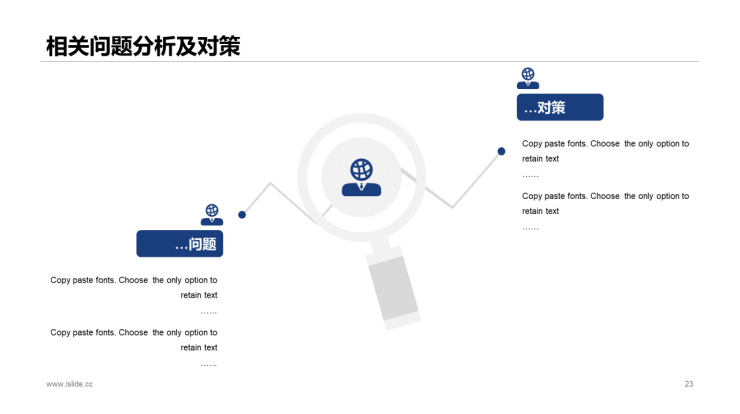TCI 5th Grade Social Studies embarks on a captivating journey through the annals of history, the intricacies of geography, and the multifaceted tapestry of cultures, fostering a deep understanding of the world around us.
This comprehensive guide delves into the core concepts, historical events, civic responsibilities, cultural diversity, critical thinking skills, and technology integration that shape the curriculum, providing educators and parents with a roadmap for enriching young minds.
Social Studies Concepts

Social studies is a broad subject that encompasses the study of history, geography, economics, and civics. In 5th grade, students begin to explore these concepts in greater depth, building upon the foundation they gained in earlier grades.
Historical Events and Figures
Students in 5th grade social studies learn about significant historical events and figures that have shaped the United States and the world. Some of the topics they may cover include:
- The American Revolution
- The Civil War
- The westward expansion of the United States
- The lives and contributions of important historical figures such as George Washington, Abraham Lincoln, and Martin Luther King, Jr.
Geography
Geography is an essential part of social studies, as it helps students understand the physical and human characteristics of the Earth and how they interact. In 5th grade, students learn about:
- The different continents and oceans of the world
- The major landforms and bodies of water
- The distribution of natural resources
- The impact of human activity on the environment
Historical Periods and Events

Understanding historical periods and events is crucial in 5th grade social studies. Students explore significant moments that shaped societies and cultures, gaining insights into the past to comprehend the present.
TCI 5th grade social studies delves into various aspects of history, culture, and geography. To enhance your understanding of these concepts, try the for ages and ages crossword . This engaging puzzle tests your knowledge of historical figures, events, and more.
By completing the crossword, you’ll reinforce what you’ve learned in TCI 5th grade social studies and gain a deeper appreciation for the subject.
Timeline of Key Historical Periods and Events
- Ancient Civilizations (c. 3500 BCE- 500 CE): The rise and fall of civilizations in Mesopotamia, Egypt, Greece, and Rome laid the foundation for Western civilization.
- Middle Ages (c. 500- 1500 CE): Feudalism, the Crusades, and the Renaissance shaped European society and culture.
- Age of Exploration (c. 1500- 1700 CE): European powers ventured into the world, leading to global trade, colonization, and cultural exchange.
- American Revolution (1775- 1783): The American colonies declared independence from British rule, establishing the United States of America.
- Civil War (1861- 1865): The conflict between the Union and Confederacy over slavery and states’ rights tested the nation’s unity.
- Industrial Revolution (c. 1760- 1840 CE): Technological advancements transformed industries, leading to urbanization and economic growth.
- World War I (1914- 1918): The first global conflict involved major powers and resulted in significant political and social changes.
- World War II (1939- 1945): The deadliest conflict in human history, with far-reaching political, economic, and social consequences.
- Civil Rights Movement (c. 1950- 1960 CE): A period of activism and social change that fought for racial equality in the United States.
- Cold War (c. 1947- 1991): A global rivalry between the United States and the Soviet Union without direct military conflict.
Significance and Impact of Historical Events, Tci 5th grade social studies
Historical events provide valuable lessons about human nature, societal structures, and the interconnectedness of the world. They highlight the consequences of human decisions and actions, as well as the resilience and adaptability of societies.
Methods of Teaching Historical Periods and Events in 5th Grade
5th grade social studies employs various methods to engage students with historical periods and events:
- Textbooks and Reading Materials:Textbooks provide a structured narrative of historical events, while supplementary readings offer additional perspectives and details.
- Document Analysis:Students examine primary and secondary sources, such as letters, diaries, and newspapers, to gain firsthand accounts of historical events.
- Historical Simulations:Students participate in simulations or role-playing activities to experience historical events firsthand, fostering empathy and understanding.
- Field Trips:Visits to historical sites and museums provide a tangible connection to the past and enhance students’ appreciation for historical preservation.
- Storytelling:Teachers narrate historical events and characters, bringing them to life and making them relatable to students.
Civic Responsibilities: Tci 5th Grade Social Studies
Civic responsibilities refer to the duties and obligations that citizens have towards their community and society. For 5th graders, understanding civic responsibilities can begin with simple acts that foster a sense of belonging and contribution.Explaining civic responsibilities to 5th graders can be done through relatable examples.
For instance, remind them of the importance of following rules at school, respecting others, and participating in class discussions. These actions demonstrate responsible citizenship within the classroom community.
Participating in Civic ActivitiesEncourage 5th graders to participate in activities that benefit their community. This could involve volunteering at a local food bank, cleaning up a park, or participating in a neighborhood cleanup day. These activities not only teach children about the importance of giving back but also foster a sense of community pride and responsibility.
Cultural Diversity
Cultural diversity is a valuable asset in 5th grade social studies, as it provides students with the opportunity to learn about different perspectives, customs, and traditions. This exposure helps them develop an appreciation for the richness and diversity of human cultures, fostering empathy, understanding, and respect for others.The
5th grade social studies curriculum often includes content that explores different cultures around the world. For example, students may learn about the ancient civilizations of Egypt, Greece, and Rome, as well as the cultures of Native American tribes, Asian countries, and African nations.
Through these studies, students gain insights into the beliefs, values, and practices of diverse societies.To teach about cultural diversity in a sensitive and inclusive manner, educators can employ various strategies. One approach is to provide students with opportunities to interact with people from different cultural backgrounds, such as through guest speakers, field trips, or virtual exchanges.
Another strategy is to incorporate multicultural literature, art, and music into the curriculum, exposing students to the creative expressions of different cultures. Additionally, educators can facilitate discussions that encourage students to reflect on their own cultural identities and perspectives, fostering self-awareness and cultural sensitivity.
Critical Thinking Skills
Social studies plays a crucial role in developing critical thinking skills in 5th graders. It provides opportunities for students to engage with complex historical events, analyze primary sources, and make informed judgments about societal issues.
Activities to Promote Critical Thinking
In 5th grade social studies, various activities foster critical thinking skills. For instance, students may conduct historical investigations, where they examine multiple perspectives on a historical event, evaluate evidence, and draw their own conclusions. Additionally, simulations and role-playing exercises allow students to step into different roles and consider alternative viewpoints.
Importance of Critical Thinking
Fostering critical thinking skills in young learners is essential for their academic and personal growth. It empowers them to analyze information, evaluate arguments, and make informed decisions. By developing these skills, students become more engaged in their learning, better equipped to navigate complex societal issues, and prepared for success in higher education and beyond.
Technology Integration
In the 21st-century classroom, technology has become an indispensable tool for enhancing social studies learning. It provides students with access to a vast array of resources, fosters collaboration, and promotes critical thinking skills.Technology in social studies allows students to delve deeper into historical events, explore different cultures, and engage in interactive simulations.
It also enables them to collaborate with peers and experts from around the world, broadening their perspectives and fostering a global mindset.
Benefits of Technology Integration
- Enhanced access to information: Technology provides students with access to a wealth of information beyond textbooks, including primary sources, videos, and interactive maps.
- Increased student engagement: Interactive simulations, games, and virtual field trips make learning more engaging and memorable.
- Improved collaboration: Technology facilitates collaboration among students and teachers, enabling them to share ideas, work on projects together, and receive feedback.
- Development of critical thinking skills: Technology-based activities encourage students to analyze information, evaluate sources, and form their own conclusions.
Challenges of Technology Integration
While technology offers numerous benefits, it also presents some challenges:
- Equity of access: Not all students have equal access to technology devices and reliable internet connections.
- Teacher training: Teachers need ongoing training to effectively integrate technology into their lessons.
- Technical difficulties: Technology glitches can disrupt lessons and hinder student learning.
Despite these challenges, the benefits of technology integration in social studies far outweigh the drawbacks. By embracing technology, educators can create a more dynamic, engaging, and equitable learning environment for all students.
FAQ Corner
What are the key concepts covered in TCI 5th Grade Social Studies?
TCI 5th Grade Social Studies encompasses core concepts such as history, geography, economics, civics, and culture, providing a holistic understanding of the world.
How does TCI 5th Grade Social Studies promote civic awareness?
The curriculum emphasizes civic responsibilities, encouraging students to engage in active citizenship through projects, discussions, and community involvement.
What role does technology play in TCI 5th Grade Social Studies?
Technology is seamlessly integrated to enhance learning, providing students with access to interactive simulations, virtual field trips, and research tools.



